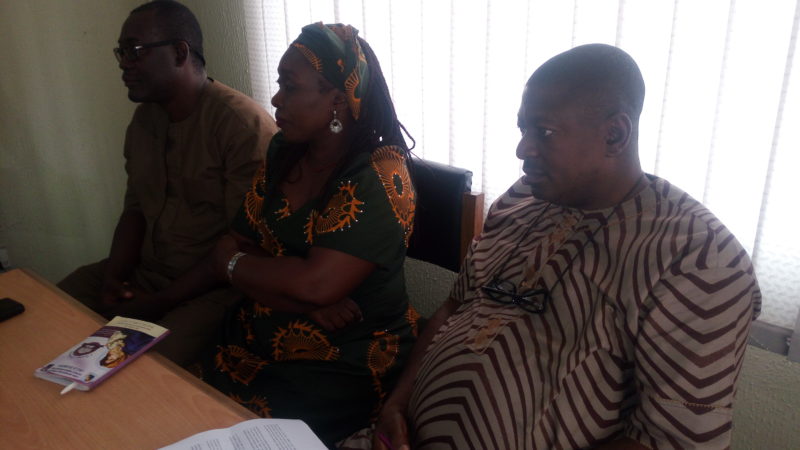Lagos State Government has refused to fix the problem in the water sector because it sees water as a business, and not as human right in the state, Deputy Executive Director, Environmental Rights Action/Friends of the Earth Nigeria (ERA/FoEN), Akinbode Oluwafemi, has said.

He spoke at a news conference in Lagos on Monday, August 6, 2017 to update the media on the current happenings in the Lagos water sector.
To mark the 2017 World Water Day on March 22, the non-governmental organisation had led Lagos residents on a march from the Ikeja Local Government Secretariat to Alausa, the seat of Lagos government, to protest “privatisation of water” in the state with the theme “Our Water Our Right”.
For Oluwafemi, that rally seems like a watershed, as the group was able to make government to shed “its arrogance” and respond overnight to some of the group’s demands on the water issue.
“It will be a mistake on the part of the Lagos State Government to think that we have gone to sleep over the issue,” he added.
All PPP (Public-Private Partnership) arrangements in Nigeria, according to Achike Chude of the Joint Action Front (JAF), who was at the Monday briefing, ended up putting more money in the pockets of the rich, to the detriment of the poor masses.
He added that when it comes to the water issue, Lagos government is sincere, but sincerely wrong.
On the argument that government has no money to fund public water, Chude, who is also a member of the Justice, Development and Peace Commission (JDPC), wondered where the N40 billion said to have been reserved for the rehabilitation of Airport Road came from.
“If the government does not have money, is it the people that have?” he wondered. “If we must privatise everything, why do we have ministries? We better do away with the ministries and replace them with regulatory agencies.”
However, it was gathered from ERA that Lagos currently rakes in over N50 billion monthly (N600 billion yearly) from internally-generated revenue (IGR) alone.
Representing the women, Vickie Onyekuru of Africa Women Water Sanitation and Hygiene Network (AWASHNET) said that women do not want privatisation of water. “We want water to be controlled by government,” she demanded.
According to ERA, the idea of privatisation of even basic necessities like water is promoted by the Breton Woods institutions to further enrich the elite.
“The idea comes from the West where basic needs are given. People must be conscious of that,” ERA said, adding that water is different from telecommunications and other items people can do without. “So, there should be no comparison.”
Invasion of multinationals
ERA said: “In recent months, we have learnt that the Lagos government has penciled Veolia, Metito and the Spanish company, Abengoa, to take control of Adiyan II – which will supply water to millions of Lagosians, despite their track record of abuse around the world. We continue to wonder how the state got to its decision, whether there is no due diligence of the companies involved.”
Veolia, a French multinational corporation adjudged the largest water privatiser around the world, allegedly mismanaged several water systems across the globe.
Also, Metito and Abengoa were said to have issues in their operations in some parts of the world.
“With companies with such track records in deals with the Lagos Government, it is evident that the government is deliberately walking into a trap that will enslave Lagos citizens for generations,” ERA added.
Specific demands
The Our Water Our Right coalition demands that the Lagos government listens to the people. It specifically asks that:
- It stops any deal with the World Bank and corporations allied to it directly or remotely, including Veolia, Metito and Abengoa.
- It makes public and revokes agreements or MoUs entered into with corporations hell-bent on foisting PPP on water provision on Lagos citizens.
- It increases budgetary allocation to the water sector within the framework of public and democratically-controlled systems.
- It allows transparency and meaningful civil society engagement in the water reform process.
By Innocent Anoruo
